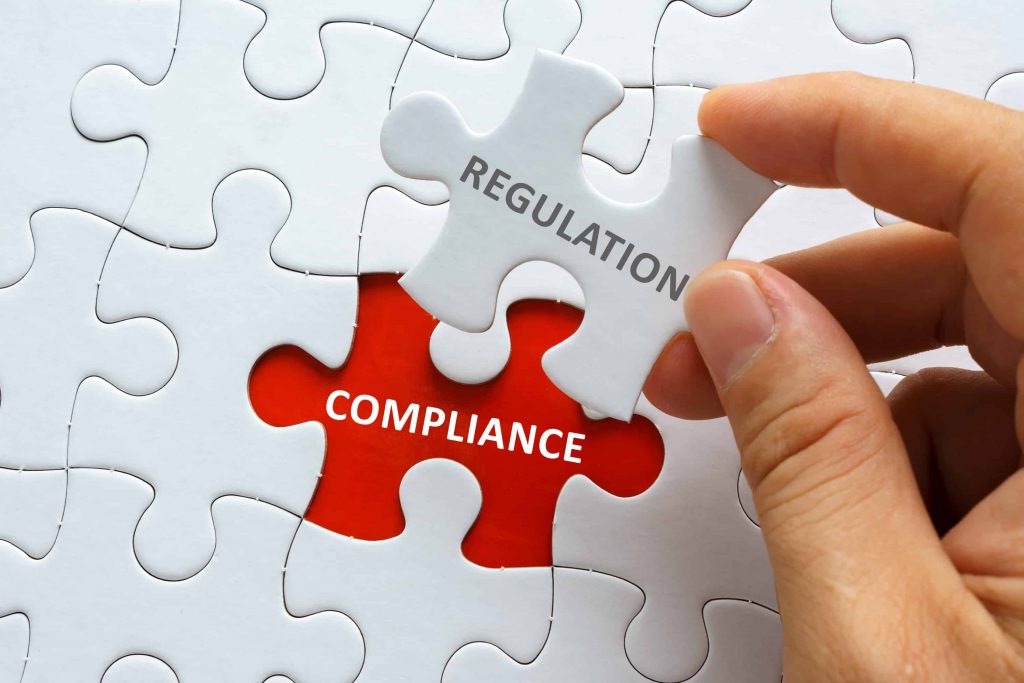
There was a time during the infancy of retail forex trading that regulators took a “hands off” approach to allow the industry to find its way and to avoid blocking innovation. As a result, the 1990s are often called the “Wild, Wild West” period of forex trading evolution. There was no sheriff in town to police what was going on, but the industry did develop quickly, as brokers learned to bundle trades and offer online innovative trading platforms.
Unfortunately, organized crime soon invaded the space with an assortment of scams, ruses, and outright frauds. Consumers were easily fleeced of their account balances by bad actors in the industry with little recourse or recovery of their losses. National regulators began to enforce oversight on the burgeoning arena of traders, brokers, money managers, and salesmen. Yes, there were a host of legitimate participants, but the criminals were destroying consumer confidence in the entire network. Something had to be done.
Regulation was nothing new for the securities and futures industries. Stock and commodities exchanges had already been around for a long time, but, until the nineties, foreign exchange had been the private province of banks, insurance companies, pension funds, and wealthy investors. Trading currencies at the retail level was new. Legislation would need to be drafted to encompass and protect this new investment territory, much in the same way that cryptocurrencies require new rules to recognise the concept of digital assets.
Regulators are typically a national government agency or the representative national bank. In the UK for example, the Financial Conduct Authority (FCA) may rule over both stocks and foreign exchange, but sports spread betting is left to the National Gambling Commission. Even though there may be historical links, financial regulators in Australia may not necessarily agree with their UK brethren. Financial spread betting is one such area of disagreement.
The phenomenon of cryptocurrencies has swept the globe, but legislators and regulators have yet to reconcile completely the differences between traditional securities law and how they might be reinterpreted to deal with their digital counterparts. The legal debate over cryptos is often whether they are securities or currencies, which often can pit two or more regulators against one another with opposing views when overlaps exist in a country.
Regulators, however, are now recognized as the “sheriff” so to speak. They are the one body that can bring order to the town, protect consumers, educate them on the risks involved, police the actions of the brokerage community, prepare lists of bad actors in the market, and generally enforce rules and regulations, fine and remove licences, and, at times, arrest and incarcerate the crooks. Your national regulator is your friend. Get to know its website and how it can help you.
Major Regulatory Agencies
Just as there are major and minor currencies, the same can be said to be true about regulatory bodies. There are a handful of major financial regulators in the forex arena. The members of this group are known to make policies that are then copied by the lower tiers and to develop cooperative agreements for when the criminals’ activity crosses over multiple jurisdictions.
The largest risk exposure today continues to be offshore brokers defrauding citizens of another country, and in the virtual world, it is almost impossible to track down the crooks before they have closed up shop and recreated themselves. Cooperation agreements can only go so far in a market where $6.6 trillion is traded daily. Many regulators have taken to publishing lists of forbidden brokers in a local jurisdiction to protect their citizens from fraud.
The major regulators are generally considered to be the following:
- Financial Conduct Authority (FCA) – Primary regulator in the UK
- Australian Securities and Investments Commission (ASIC) – Australian Financial Regulators
- Cyprus Securities and Exchange Commission (CySEC) – Regulator in Cyprus
- European Securities and Markets Authority (ESMA) – European Financial Regulators
- Commodities and Futures Trading Commission (CFTC) – Regulatory oversight for trading currencies in the United States
- National Futures Association (NFA) – Example of an industry-wide, self-regulatory organization set up for the derivatives industry
Regulatory Bodies by Geo
Beneath these six major regulatory bodies, there is another list for the next tier down, and then a third tier that includes the balance of developing countries and smaller jurisdictions. An appropriate geographical list of financial regulators in this second tier might include the balance of the G20 countries. Even though ESMA represents the Euro Zone, there are major powers within the zone, which have their own regulatory agencies. The other 15 regulators are listed below:
- Argentina – Central Bank of Argentine Republic (BCRA)
- Brazil – The Brazilian Central Bank (BACEN)
- Canada – Canadian Securities Administrators (CSA) – Also check with local provincial authorities
- China – China Securities Regulatory Commission (CSRC)
- Germany – The Bundesanstalt fur Finanzdienstleistungsaufsicht (BaFIN)
- France – Autorite des marches financiers (AMF)
- India – Securities and Exchange Board of India (SEBI)
- Indonesia – Commodities Futures Trade Regulatory Agency (CoFTRA)
- Italy – Commissione Nazionale per le Societa e la Borsa (CONSOB)
- Japan – Financial Services Agency of Japan (FSA of Japan)
- Mexico – Central Bank of Mexico (Banxico)
- The Russian Federation – Centre for Regulation of Off-Exchange Financial Instruments and Technologies (CRFIN)
- Saudi Arabia – Capital Market Authority (CMA)
- South Africa – Financial Services Board (FSB)
- South Korea – Financial Supervisory Commission (FSC)
- Turkey – Sermaye Piyasasi Kurulu (SPK or CMBT)
In addition to these regulators, there are a few more that are influential in the forex industry because brokers have set up operations in these locales due to favourable local law. These agencies may only conduct cursory reviews of their licensees, a reason to deal only with brokers under more strict regulatory oversight. This list follows:
- British Virgin Islands – Financial Services Commission (FSC)
- Mauritius – Financial Services Commission (FSC)
- Israel – Israel Securities Authority (ISA)
- Malta – Malta Financial Services Authority (MFSA)
- Seychelles – Seychelles Financial Services Authority (FSA Seychelles)
- St. Vincent and the Grenadines – Financial Services Authority (FSA)
- Vanuatu – Vanuatu Financial Services Commission (VFSC)
Concluding Remarks
Regulators are your friends. They are there to make sure brokers obey the rules, especially when segregating your deposits and maintaining adequate capital on hand. Become familiar with their website in your personal jurisdiction and look to them for support when you suspect fraud.
The Best Safe Forex Brokers
| Broker | Features | Min Deposit | EURUSD Spread | ||
|---|---|---|---|---|---|
 Between 74-89 % of retail investor accounts lose money when trading CFDs
US Clients: No Regulated : Yes Between 74-89 % of retail investor accounts lose money when trading CFDs
US Clients: No Regulated : Yes
|
|
$200 | NDD 0.09 / Standard 0.69 |
Sign
Up
Between 74-89 % of retail investor accounts lose money when trading CFDs
|
|
 Your capital is at risk
US Clients: No Regulated : Yes Your capital is at risk
US Clients: No Regulated : Yes
|
– Flexible leverage up to 500:1 |
$200 | From 0.1 | ||
 Your capital is at risk
US Clients: No Regulated : Yes Your capital is at risk
US Clients: No Regulated : Yes
|
– 40% New Member Bonus
|
$100 | Fixed |
Sign
Up
Europe* CFDs are complex instruments and come with a high risk of losing money rapidly due to leverage. 79% of retail investor accounts lose money when trading CFDs with this provider. You should consider whether you understand how CFDs work and whether you can afford to take the high risk of losing your money.
|
|
 * 82% of retail investor accounts lose money when trading CFDs with this provider. You should consider whether you can afford to take the high risk of losing your money
US Clients: No Regulated : Yes * 82% of retail investor accounts lose money when trading CFDs with this provider. You should consider whether you can afford to take the high risk of losing your money
US Clients: No Regulated : Yes
|
|
100GBP/AUD/EUR/USD | variable |
Sign
Up
* 82% of retail investor accounts lose money when trading CFDs with this provider. You should consider whether you can afford to take the high risk of losing your money
|
|
 Your capital is at risk
US Clients: No Regulated : Yes Your capital is at risk
US Clients: No Regulated : Yes
|
|
$5 | From 0.0 pips | ||
 51% of retail CFD accounts lose money
US Clients: No Regulated : Yes 51% of retail CFD accounts lose money
US Clients: No Regulated : Yes
|
|
$50 (varying by Country) | from 1 |
Sign
Up
*Don’t invest unless you’re prepared to lose all the money you invest. This is a high-risk investment and you should not expect to be protected if something goes wrong. Take 2 mins to learn more
|
|
 Your capital is at risk
US Clients: No Regulated : Yes Your capital is at risk
US Clients: No Regulated : Yes
|
– CySEC, FCA, FSCA, SCB Regulated |
$100 | |||
|
|
|||||